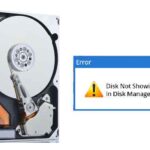Creating any type of website requires a domain name, a web host, and a platform. It also needs a plan of the website’s design.
All of these aspects need to be decided depending on the needs and the purpose of your site. Is it going to be an eCommerce store? A portfolio website? O a small website to represent your growing business?
If the latter is what you’re after, a single page website will be more than enough. In this article, I’ll give you a simple explanation of a single page website as well as eight advantages it has compared to a multi-page website.
Let’s get started.
What is a One-Page-Website?
A one-page website is a site that contains only one HTML page. Its primary purpose is to give the required information to visitors without overwhelming the visitors with content.
By utilizing a minimalistic approach, a one-page website removes any unnecessary elements from the website and instead places a heavier emphasis on its content. That’s why this design isn’t suitable for all niches and is primarily used for portfolios and landing pages.
To navigate to different sections on a one-page website, users can click on the navigation links, which will allow them to jump to other sections on the page. Users can also simply scroll down the page to get to different sections of the website.
People will usually compare a one-page website to a multi-page website. The main difference is that a multi-page website contains multiple pages and subpages, which need a navigation menu or search bar function for you to navigate around it.
While a multi-page website is still the most used design on CMSs and website builders due to its versatility and expandability, having a single page website can also be helpful for your business.
Benefits of One-Page Website for Small Businesses
The traditional multi-page website will always have its place because of the benefits that it comes with. Here are the main advantages to consider.
Increase Audience Engagement
A study showed that over half of the internet users’ attention span and patience is just 15 seconds, so the faster you can get your message across, the better it is.
By placing all of your essential information on just one page, you are more likely to retain your audience’s interest more effectively than on a multi-page website.
Better Story-Telling
A single page website is made so the webpage can follow a story narrative of your site. It helps create a more intuitive user experience because users can enjoy a linear navigation flow with a clear beginning and end.
In a single page, users will be able to scroll through and understand everything about your offer’s products or services, making it easier to communicate and compel your target audience to convert.
Simplify User Experience
A one-page design helps visitors immediately get to know your site’s purpose and find what they want faster. All they need to do is scroll down to learn more.
It also removes UI clutter. This, in turn, makes your website more intuitive.
A study showed that a one-page website led to a 37.5% increase in conversions than the standard multi-page layout.
No Page Refresh
When navigating through a single page website, no page refresh is necessary because all of your website’s content is already loaded on the page or through Ajax. So you can seamlessly scroll through the site without having to see chunks of unloaded content.
Easier Maintenance
Because it has minimal elements and maximum content, you can focus on quality over quantity. So instead of focusing on designing multiple pages for different content types, you can focus on just one page and maximize your effort to create a high-quality design.
Should there be anything that needs to be fixed, adjusted, removed, or added, you can get it done swiftly because it’s all on one page. This is especially useful for those who aren’t experts in web design.
Reduce Bounce Rates
A single page website helps reduce bounce rates because it fulfills the requirements and needs of the users, such as:
- Quick-to-load page.
- Self-sufficient content.
- Easy to navigate website.
- Mobile-friendly.
- Simple content structure.
Cost-Effective
Though it may take more time and effort to develop the strategy on fully utilizing your one-page website, creating a single-page site is more affordable.
You can use website builders to quickly generate a one-page website using their pre-existing designer-made templates. Since you don’t need to customize many elements, you can create a website much faster than the normal multi-page one.
If your business is in a rush of creating a website, then going with a one-page website is the right choice. You can continually expand the site later on as you grow.
Perfect for Mobile Devices
A single page website is made to be compatible with all devices. It’s easy to optimize because of the minimum content and because it adopts a scroll-down movement, which is a natural activity for touchscreen devices.
Because it’s only one HTML page, mobile back-end optimization is also a simple task.
Conclusion
Now you know what a single page website is and the advantages it can bring for your small business. All that’s left to do is decide which type of design you want for your website, whether it is the traditional multi-page one or the single-page one.

















